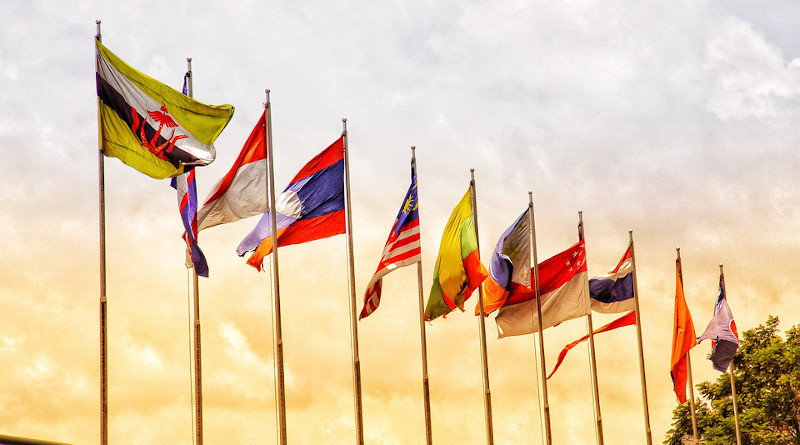Securing The Developing World Amid Climate And Environmental Threats: An ASEAN Response – OpEd
Existing academic literatures have already acknowledged that developing countries are highly vulnerable to disastrous impacts of climate change and environmental threats. The World Bank warns that harsh environmental effects of climate change, if not effectively mitigated, can unnecessarily bring at least 100 million people from developing world below the poverty line by 2030.
Climate change also serves as an imminent threat to food security of people from developing world. The Food and Agriculture Organization contends that of the 124 million people facing food insecurity in the developing world, 76 percent have been seriously affected by climate shocks and extreme weather. Climate change reduces agricultural outputs as a result of extreme weather conditions, especially erratic changes in rainfall patterns,
The World Health Organization also laments that warmer environment caused by climate change is a threat to health security as hotter weather can expose around one billion people in the developing world to deadly infectious diseases. Climate change can provide a conducive environment for many infectious diseases to thrive and spread. The Intergovernmental Panel on Climate Change reported in March 2022 that the world would suffer rapid escalation of infectious diseases without decisive climate change action. The world’s poorest population will suffer most from this escalation.
According to the Stanford Environment Assessment Facility, climate change and environmental degradation also raises the risk of armed conflicts in the developing world. In the 2022 study conducted by the Ingenio Institute examining armed conflicts in Africa, it argues that climate affects the duration of violent activities in this troubled region. The study observes that a prolonged increase in temperature and precipitation increases the probability of armed conflict beyond the affected area by four to five times. It also concludes that, in Africa, food shortages arising from drought increase the possibility of violent conflict, especially if water shortages last at least three years.
Thus, climate change presents various environmental challenges to human security of people in the developing world. It is therefore an urgent task of all countries in the developing world to pursue decisive climate change action in order to uphold the human security of their people.
In 2021, the Secretariat of the Association of Southeast Asian Nations (ASEAN) published the ASEAN State of Climate Change Report: Current Status and Outlook of the ASEAN Region Toward the ASEAN Climate Vision 2050. This Report identifies climate change as one of its regional priorities. The Report also reaffirms the commitment of ASEAN member states (AMS) to the following:
- Implementing measures to address climate change under the ASEAN Socio-Cultural Community (ASCC) Blueprint 2025;
- Promoting sustainable management of forests through the Reducing Emissions from Deforestation and Forest Degradation and the role of conservation, sustainable management of forests and enhancement of forest carbon stocks in developing countries (REDD+)7 ;
- Reducing energy intensity in line with the ASEAN Plan of Action for Energy Cooperation (APAEC) 2016-2025;
- Launching the ASEAN Regional Strategy on Sustainable Land Transport, the ASEAN Fuel Economy Roadmap for the Transport Sector 2018-2025 with a focus on light-duty vehicles, and the Guidelines for Sustainable Land Transport Indicators on Energy Efficiency and Greenhouse Gas Emissions in ASEAN;
- Strengthening ASEAN’s capacity in managing climate-related disasters through existing mechanisms under the ASEAN Agreement on Disaster Management and Emergency Response (AADMER);
- Implementing Phase 2 of the Plan of Action of the ASEAN Disaster Risk Financing and Insurance (ADRFI) and establishing the Southeast Asia Disaster Risk Insurance Facility (SEADRIF) with a focus on strengthening AMS’s financial resilience by improving disaster risk assessment, financing and insurance solutions; and,
- Promoting collaboration with ASEAN dialogue, sectoral dialogue, development partners and other external parties to enhance climate action in the ASEAN region.
In other words, ASEAN has existing measures to address the environmental threats of climate change to human security of the developing world. What is urgently needed is for AMS to implement these measures nationally by strengthening not only government capacity but also the capacity of the private sector to act through public-private partnership and in collaboration with the larger civil society. Securing the developing world amidst climate change and environmental threats requires the collective action not only among states but also of pertinent stakeholders within the state.
Speech delivered at the KL Conference 2023 with a theme, “Building an Asian Common Market of Shared Prosperity” organized by the Center for Economic and Sustainable Development and Global Dialogue Forum held on 17 June 2023 in Kuala, Lumpur, Malaysia.

